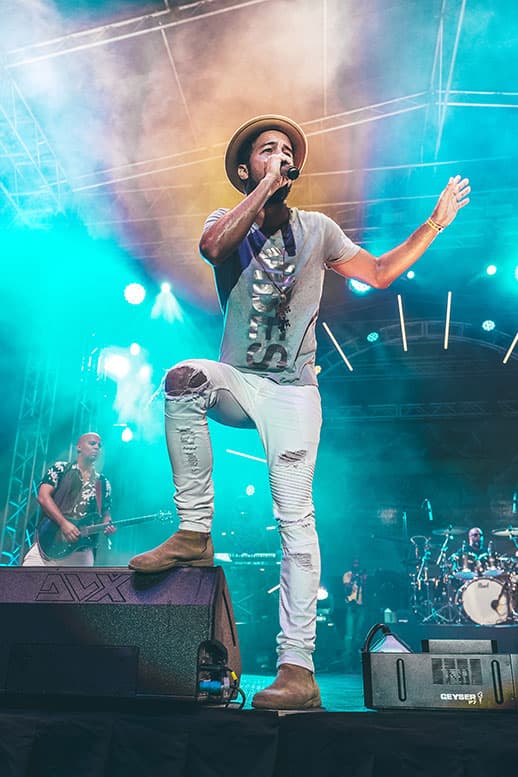Step into the world of technology education with Kelsey Derringer, the Co-founder of CodeJoy, LLC, as she shares insights into her involvement in the upcoming courses for the 2024 Infosys Foundation USA Pathfinders Summer Institute. In an exclusive interview with Amanda Jeane Strode, Kelsey shares CodeJoy’s vision to democratize access to technology education, empowering individuals to chart their own path to success in the digital age.
Amanda Jeane Strode (AJS): What course are you teaching this summer and what makes you excited about it?
Kelsey Derringer (KD): I am teaching Beyond the Hype: Practical AI for Educators and also Robot Mini Golf for the Classroom with the Hummingbird Robotics Kit.
When it comes to AI, I'm really excited to learn more about AI myself and also to help teachers navigate the very confusing, busy, Wild West landscape of AI that's happening right now. There are so many innovations happening in AI that it's really difficult to keep up as just a person. Teachers have so many other things going on and then adding this topic, which has not yet been settled by the industry, just makes for a very confusing and muddled experience of trying to learn this yourself. What I'm really excited about is to help teachers navigate.
We're working this summer with Aaron Maurer, who is a teacher, educator, and professional development provider through the AEA system in Iowa, and Rachelle Dené Poth, who is a teacher, educator, and professional development provider here in Pennsylvania. Both of these folks have been teaching AI to educators for six or seven years now. They've been around before ChatGPT, and they'll be here after. They have a deep understanding of where AI has come from, where it is, and where it might be going. I’m excited to bring in experts to help me and help teachers broadly navigate what is possible, what we should really be afraid of, and what we should be excited about.
For Robot Mini Golf, I love building with Hummingbird Kits. It's the thing that got me into robotics. A Hummingbird Kit is what turned me from an English teacher into a robotics teacher. One of the big questions we get from a lot of teachers is, “Hummingbird was really fun, but how do I design a whole unit based on this?” We're taking the Robot Mini Golf project and translating that into a full project-based learning unit. I'm really excited to see what teachers create for their Robot Mini Golf courses, but even more than that, I'm excited to see how they translate this deep problem-based learning system into their classrooms. Hopefully providing a deep, hands-on learning experience through robot mini golf will provide them the information they need to make their own projects.
AJS: What do you find rewarding about teaching educators?
KD: My favorite educators to teach are the folks who are right on the edge of burnout and looking for a reason to stay. I love working with teachers who want to do great and innovative things, but they have felt like they couldn't for some reason, and introducing them to a new tool, a new activity, and seeing them light up. I like seeing teachers get excited about teaching again.
That's my favorite thing about teaching teachers. When we think about structuring our [professional development] sessions, I really think about how we can not just transmit information, [but also how] to provide experiences for teachers. It's a little bit of improv, a little bit of Hands-On learning, so that after a three hour session they say, “I can't wait to do that!” I get so excited about designing experiences that leave teachers feeling more hopeful, more excited, and more enthusiastic about their own teaching practices than when they first walked in.
AJS: What are you looking forward to this summer?
KD: I am looking forward to fully operating out of our new studio!  I'm looking forward to having so many people that I respect working here in one building where we're not stepping all over each other, and where we can do great teaching. I'm really looking forward to being in the same space with Amanda Jeane, and Adam, and Matt, and Mike, and being on screen with so many people who inspire me as a teacher. So, I'm really looking forward to growth this summer and giving ourselves the opportunity to enjoy our growth this summer. We're all gonna have a great time learning from this space!
I'm looking forward to having so many people that I respect working here in one building where we're not stepping all over each other, and where we can do great teaching. I'm really looking forward to being in the same space with Amanda Jeane, and Adam, and Matt, and Mike, and being on screen with so many people who inspire me as a teacher. So, I'm really looking forward to growth this summer and giving ourselves the opportunity to enjoy our growth this summer. We're all gonna have a great time learning from this space!
AJS: What are your thoughts on Maker Education and the role of coding and robotics in schools?
KD: I think coding and robotics can be a supplement to any subject in school. And as far as the distinction between coding and robotics, research shows us over and over and again that when you want to try to serve under-engaged populations – girls, low income, students with learning exceptionalities, and rural students – these are students who are perfectly capable of learning to code and making robots but, for a variety of reasons, they just have not been engaged in that yet. This might be due to lack of access, lack of interesting projects, lack of culturally relevant activities, or lack of a teacher who's qualified and comfortable enough to do it. But when we look at those under-engaged and underserved groups, over and over again, the research shows us that physical computing – bringing that code off the screen and making it do something real – is a better engagement tool.  Coding is fine, but most kids are interested in what coding can do, because it can do anything. So, grounding that in a little cardboard robot, or in a micro:bit, or in a Finch, packaging the lessons of coding in a Hands-On activity, makes that not only fun for the students, but also makes that relevant in any classroom. Maybe if you're in your English classroom, you'll make a diorama of the book that you're reading. Maybe if you're in science, you'll do an interactive exhibit showing the water cycle. If you're in math class, maybe you make a robot that can calculate the length of the hypotenuse for you. The thing that I love about robotics iIn education is that it has a place in every classroom as a way to practice, improve, and engage with other topics. That's my favorite thing about it.
Coding is fine, but most kids are interested in what coding can do, because it can do anything. So, grounding that in a little cardboard robot, or in a micro:bit, or in a Finch, packaging the lessons of coding in a Hands-On activity, makes that not only fun for the students, but also makes that relevant in any classroom. Maybe if you're in your English classroom, you'll make a diorama of the book that you're reading. Maybe if you're in science, you'll do an interactive exhibit showing the water cycle. If you're in math class, maybe you make a robot that can calculate the length of the hypotenuse for you. The thing that I love about robotics iIn education is that it has a place in every classroom as a way to practice, improve, and engage with other topics. That's my favorite thing about it.
AJS: Can you give us a preview to something we will be learning about in your courses, Beyond the Hype: Practical AI for Educators and Robot Mini Golf for the Classroom, this summer?
KD: In the AI course, one activity we have planned is [...] using AI to create a coloring sheet to teach us something about nature. Some of the takeaways are that in order to get an AI image generator to generate a coloring sheet, you've got to be a good communicator because you need to communicate, “What's the difference between a photo and a coloring sheet?” You could say, “Give me a black and white image,” but there's a difference between black and white image and a coloring sheet. So, you have to know some things about your subject In order to at least catch mistakes. I mean, there's so many AI generated things out there that look pretty convincing unless you know what you're looking at, and then you're like, “That's fake. That doesn't exist.” So, I'm excited to do some Hands-On activities with AI because I really think it's going to help teachers feel more comfortable with AI in that it's not “doing everything for our students.” AI will not make learning irrelevant. And it won't make teaching irrelevant either.
 And in Robot Mini Golf, I am really excited to finally have an excuse to write down some of the stuff that we’ve been saying in professional development for years! Even before we started CodeJoy, back at BirdBrain, Matt and I were demonstrating some mechanisms, some sensors, some input and output systems that just never made it onto the BirdBrain website – and they haven't made it onto the CodeJoy website. So, I'm really excited to be able to take some pictures, make some videos, make some learning materials to take what's been in our heads for years now, and just put it down somewhere and really focus on that with teachers.
And in Robot Mini Golf, I am really excited to finally have an excuse to write down some of the stuff that we’ve been saying in professional development for years! Even before we started CodeJoy, back at BirdBrain, Matt and I were demonstrating some mechanisms, some sensors, some input and output systems that just never made it onto the BirdBrain website – and they haven't made it onto the CodeJoy website. So, I'm really excited to be able to take some pictures, make some videos, make some learning materials to take what's been in our heads for years now, and just put it down somewhere and really focus on that with teachers.
Final Thoughts
One of the most exciting things about our work with the Infosys Pathfinders initiative is that Infosys Foundation USA fully funds it! They are a national nonprofit focusing on maker and computer science education, and their funding presents such an amazing opportunity for the teachers. But it's also an amazing opportunity for us as a business, and we couldn't do it without the funding of the Infosys Foundation USA. We say a huge “Thank you” from the entire CodeJoy team to the Infosys Foundation USA, because we couldn't do what we do if you didn't provide what you provide!
Are you a public school teacher or librarian in the USA? Do you want to check out Kelsey’s courses, and more, this summer? LEARN MORE ABOUT THEM HERE AND REGISTER NOW! We can’t wait to learn with you!
#InfyPathfinders @InfyFoundation @CodeJoyEdu @birdbraintech @microbit_edu #EarthDwellers
